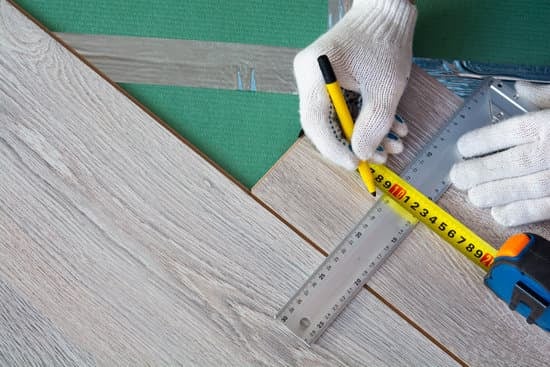Are you able to write off home improvements in order to maximize tax benefits? Many homeowners may not be aware of the opportunity to receive tax deductions for certain home improvement expenses.
In this article, we will delve into the concept of writing off home improvements and explore the potential benefits it can offer to homeowners. Understanding the eligibility criteria, qualifying home improvements, documentation requirements, limitations, and consulting with a tax professional are essential aspects that will be covered in detail.
When it comes to minimizing tax liability and maximizing savings, understanding the various types of tax deductions available for home improvements is crucial. From renovations to energy-efficient upgrades and home office improvements, there are several qualifying home improvement expenses that can potentially lead to tax benefits for homeowners. By carefully documenting these expenses and adhering to specific criteria, individuals may be able to take advantage of these deductions when filing their taxes.
As we navigate through the intricacies of writing off home improvements on taxes, it is important for homeowners to understand any limitations or restrictions that may apply. For instance, some deductions may require the improvement to add value to the home or meet certain energy efficiency standards. By exploring real-life examples and case studies, this article aims to provide practical insights into how homeowners can leverage tax deductions for home improvements to their advantage.
Understanding Tax Deductions
Tax deductions for home improvements can provide homeowners with significant savings when it comes to their taxes. Understanding the different types of tax deductions available and the criteria for eligibility is crucial for maximizing potential benefits. Here are the main types of tax deductions that homeowners can take advantage of:
- Mortgage Interest Deduction: Homeowners can deduct the interest they pay on their mortgage from their taxable income, potentially resulting in substantial tax savings.
- Property Tax Deduction: Property taxes paid on a primary residence or vacation home are generally deductible, providing another opportunity for homeowners to lower their tax liability.
- Energy-Efficient Home Improvement Credits: Making energy-efficient upgrades to your home, such as installing solar panels or energy-efficient windows, may qualify for tax credits, which directly reduce the amount of tax owed.
In order to be eligible for these tax deductions, homeowners must meet certain criteria and adhere to specific guidelines set by the Internal Revenue Service (IRS). For example, there are limitations on the amount of mortgage interest that can be deducted, and not all energy-efficient improvements qualify for tax credits. Additionally, homeowners must ensure that they have proper documentation and records to support their claims for these deductions.
Understanding these different types of tax deductions and their eligibility criteria is essential for homeowners who want to take advantage of potential savings on their home improvement expenses. By consulting with a qualified tax professional, homeowners can gain insight into how they may be able to write off home improvements and maximize their tax benefits.
Qualifying Home Improvements
When it comes to home improvements, many homeowners wonder whether they can write off these expenses on their taxes. The good news is that, under certain circumstances, you may indeed be able to claim tax deductions for qualifying home improvements. Understanding what types of home improvements qualify for tax deductions and how to navigate the process can help homeowners maximize potential savings.
Renovations
Renovations are one of the most common types of home improvements that may qualify for tax deductions. This can include major upgrades such as kitchen or bathroom remodels, basement finishing, or room additions. It’s important to note that ordinary repairs and maintenance typically do not qualify for tax deductions, so it’s crucial to distinguish between routine upkeep and significant renovations when claiming these expenses.
Energy-Efficient Upgrades
Homeowners who make energy-efficient upgrades to their homes may also be eligible for tax deductions. This can include the installation of solar panels, energy-efficient windows and doors, insulation, or HVAC systems. In addition to potential tax deductions, these upgrades can also lead to long-term cost savings through reduced energy bills.
Home Office Improvements
For individuals who use a portion of their home exclusively for business purposes, certain home office improvements may also be eligible for tax deductions. This could include renovations or modifications that create a dedicated workspace within the home. However, it’s important to carefully adhere to IRS guidelines regarding the eligibility of home office expenses for tax deductions.
Before proceeding with claiming tax deductions for any type of home improvement, it’s essential to consult with a qualified tax professional to ensure compliance with relevant regulations and maximize potential savings. Additionally, accurately documenting and retaining records of all improvement expenses is critical in supporting any potential tax deduction claims during IRS audits.
With the right approach and guidance from a tax professional, homeowners can explore the possibility of writing off qualifying home improvements on their taxes while ultimately enhancing the value and functionality of their properties.
Documenting Expenses
When it comes to writing off home improvements on your taxes, proper documentation is essential. Keeping thorough and accurate records of your home improvement expenses is crucial to supporting your tax deductions. Without the necessary documentation, you may not be able to prove the validity of your claimed deductions if you are audited by the IRS.
Types of Expenses to Document
To properly document your home improvement expenses, you should keep detailed records of all costs associated with the project. This includes invoices, receipts, contracts, and any other relevant paperwork. Additionally, you should also keep a record of any permits or approvals obtained for the improvements.
Record Keeping Best Practices
It’s important to establish an organized system for storing and managing your home improvement documentation. Consider creating a dedicated folder or digital file for each project, where you can consolidate all related documents in one place. This will make it easier to locate specific records when needed for tax purposes.
Electronic vs. Paper Records
In today’s digital age, electronic record-keeping has become increasingly popular due to its convenience and accessibility. Scanning and saving paper documents as electronic files can help safeguard against loss or damage and make it easier to produce copies if required by the IRS. However, some individuals still prefer traditional paper records, so it’s ultimately a personal preference based on what works best for you.
By following these guidelines for documenting expenses related to home improvements, homeowners can position themselves to effectively support their tax deductions while minimizing the risk of issues during tax filing. Ultimately, maintaining thorough and organized records is key to maximizing potential tax benefits in relation to home improvement projects.
Limitations and Restrictions
When it comes to writing off home improvements on your taxes, it’s important to be aware of any limitations or restrictions that may apply. One key factor to consider is whether the improvement adds value to your home.
In general, for an expense to be considered a tax-deductible home improvement, it must increase the value of your home or prolong its useful life. Simple repairs and maintenance, such as painting or fixing a leaky faucet, are not typically eligible for tax deductions unless they are part of a larger home improvement project that meets the criteria.
Another restriction to be mindful of is the requirement for the improvement to be made on your primary residence. Any work done on a second home or investment property would not qualify for tax deductions as a home improvement expense. Additionally, any improvements made on rental properties are typically classified as business expenses rather than home improvement costs.
It’s important to understand that there are specific guidelines set by the IRS regarding what types of home improvements can be deducted from your taxes. Knowing these limitations and restrictions can help homeowners make informed decisions about which projects may provide tax benefits and which may not qualify.
| Home Improvement | Tax Deduction Eligibility |
|---|---|
| Bathroom Renovation | May qualify if it adds value to the home |
| Solar Panel Installation | Tax credit available in addition to potential deduction |
| Home Office Addition | Must be exclusively used for business purposes |
Tax Credits vs Tax Deductions
When it comes to tax benefits for home improvements, it’s important to understand the difference between tax credits and tax deductions. While both can help homeowners save money on their taxes, they work in different ways and can have different impacts on a homeowner’s tax liability.
Tax deductions reduce the amount of income that is subject to taxation, which in turn reduces the total amount of taxes owed. On the other hand, tax credits provide a dollar-for-dollar reduction in the actual amount of taxes owed. This means that a $1 tax credit will directly reduce your tax bill by $1.
To put it simply, tax deductions can lower your taxable income, while tax credits directly reduce the amount of taxes you owe. This difference can have significant implications for homeowners looking to offset the cost of home improvements through tax benefits.
Here are some examples of how tax deductions and tax credits can benefit homeowners:
- A homeowner who installs energy-efficient windows may be eligible for a tax credit based on a percentage of the cost of the windows.
- Another homeowner who takes out a home improvement loan may be able to deduct the interest paid on that loan from their taxable income.
- Additionally, certain home improvements aimed at making a home more accessible for individuals with disabilities may qualify for specific tax credits.
Overall, understanding the difference between tax credits and deductions is essential for homeowners looking to maximize their potential tax benefits when it comes to home improvements. Consulting with a qualified tax professional can help determine which option is most advantageous for individual circumstances.
Consultation With a Tax Professional
When it comes to tax deductions for home improvements, seeking advice from a qualified tax professional is crucial in order to ensure accurate filing and maximize potential deductions. Tax laws and regulations can be complex and difficult to navigate, so having the expertise of a tax professional can make a significant difference in the outcome of your tax return.
A tax professional can provide valuable guidance on the different types of tax deductions available for home improvements, as well as the specific criteria for eligibility. They can also help homeowners understand any limitations or restrictions on writing off home improvements, such as the requirement for the improvement to add value to the home.
Furthermore, a tax professional can assist in properly documenting and keeping records of home improvement expenses to support tax deductions. This is essential in case of an audit by the IRS, as accurate documentation will be necessary to substantiate the deductions claimed on the tax return.
In addition to navigating deductions, a tax professional can also clarify the difference between tax credits and tax deductions when it comes to home improvements, and how they can impact homeowners’ overall tax liability. With their expertise, homeowners can have peace of mind knowing that their taxes are being filed accurately and in compliance with relevant laws and regulations.
| Benefits | Guidance |
|---|---|
| Maximize potential deductions | Valuable advice on eligibility criteria |
| Peace of mind | Assistance with proper documentation |
| In-depth knowledge | Differentiation between tax credits and deductions |
Case Studies and Examples
Many homeowners wonder, “Are you able to write off home improvements?” The answer is yes, in many cases. To better understand how this works, let’s take a look at some real-life examples of homeowners who have successfully utilized tax deductions for home improvements and the potential impact on their finances.
In one case study, a homeowner invested in energy-efficient upgrades for their home, including installing solar panels and upgrading their HVAC system. By doing so, they were able to qualify for tax deductions under the Residential Renewable Energy Tax Credit. As a result, they not only benefited from lower utility bills due to the energy-efficient improvements but also received a substantial tax credit that had a positive impact on their overall finances.
In another example, a self-employed homeowner made significant improvements to their home office space. This included renovating the space to create a more functional and productive work environment. As a result of these home office improvements, the homeowner was able to claim a portion of the expenses as tax deductions related to their business. This reduced their overall tax liability and allowed them to invest more back into their business.
These examples demonstrate how homeowners can leverage tax deductions for home improvements to not only enhance the comfort and value of their homes but also positively impact their financial situation. However, it’s important for homeowners to consult with a qualified tax professional to ensure accurate filing and maximize potential deductions based on individual circumstances.
Conclusion
In conclusion, the ability to write off home improvements can be a valuable opportunity for homeowners to offset some of the costs associated with maintaining, renovating, or upgrading their properties. By taking advantage of tax deductions, homeowners may be able to reduce their overall tax liability and potentially save a significant amount of money.
However, it is essential to understand the criteria for eligibility, properly document expenses, and be aware of any limitations or restrictions associated with writing off home improvements.
When considering whether certain home improvements are eligible for tax deductions, it is important for homeowners to consult with a qualified tax professional. These experts can provide personalized advice based on individual circumstances and help ensure accurate filing while minimizing any potential risks of non-compliance. Additionally, obtaining guidance from a tax professional can also help homeowners identify other opportunities for maximizing potential deductions and credits related to home ownership.
Ultimately, while the process of writing off home improvements on taxes may seem complex, understanding the available options and seeking professional advice can prove to be highly beneficial for homeowners. By taking the time to educate themselves and carefully document their expenses, homeowners have the opportunity to leverage tax deductions as a means of managing the financial impact of maintaining their homes.
Whether through renovations, energy-efficient upgrades, or other qualified improvements, homeowners should explore this potential avenue for achieving cost savings while making their homes more comfortable and valuable.
Frequently Asked Questions
Can You Use Home Improvements as a Tax Write Off?
Home improvements can generally not be used as a tax write off, as they are considered personal expenses. However, certain home improvements that are energy-efficient or related to medical needs may qualify for tax credits or deductions.
What Qualifies as Capital Improvements?
Capital improvements are substantial investments made in a property that increase its value, extend its useful life, or adapt it for a new use. Examples include adding a room, renovating the kitchen, or installing a new roof.
What Is Tax Deductible for Homeowners?
Tax-deductible expenses for homeowners may include mortgage interest, property taxes, and certain home office expenses. Additionally, expenses related to the purchase or sale of a home, as well as losses from theft or casualty events, may also be deductible.

I’m thrilled to have you here as a part of the Remodeling Top community. This is where my journey as an architect and remodeling enthusiast intersects with your passion for transforming houses into dream homes.





